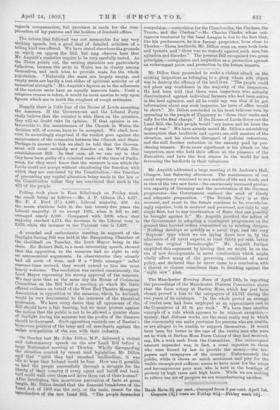The Manchester Evening News of April 13th, in reporting the
proceedings of the Manchester Distress Committee, states that the farm colony at Barton Moss, which has just been closed, proved a loss to the ratepayers of 21,761 during the two years of its existence. "In the whole period an average of twelve men had been employed at an approximate cost to the Committee of Ll 6s. per week." We have here another example of a rule which appears to be without exception,— namely, that distress works are the most costly way in which the community can make provision for persons who are unable, or are alleged to be unable, to support themselves. It would have been far better in the case of the twelve men who were set to work at Barton Moss Farm Colony if they had, received, say, 13a. a week each from the Committee. The extravagant amount expended was, in fact, a cruel injustice to those who were forced by law to provide the money,—the tax- payers and ratepayers of the country. Unfortunately the public!, while it shows so much sentiment and pity for the visible unemployed sufferer, seems to have none for the silent and inconspicuous poor man who is hold in the bondage of poverty by high rates and high taxes. While we are seeking to relieve one set of paupers we are manufacturing another.






















































 Previous page
Previous page